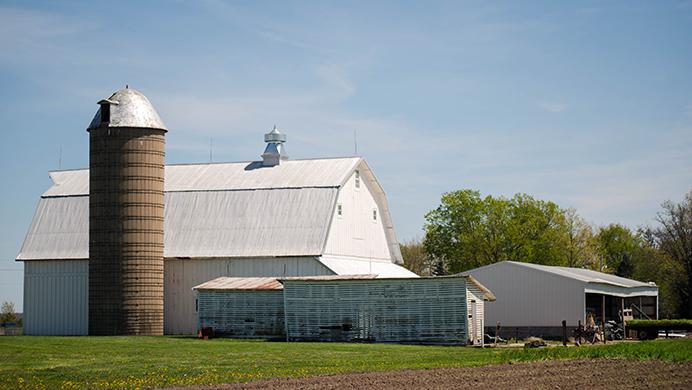A UI study finds individuals in farm and agriculture work have a higher suicide rate than any other occupation.
By Madeleine Neal
After losing everything, a farmer committed suicide in 1933 with a rifle. His distraught wife could not bear to keep the gun, so she gave it to the boy next door.
That boy was Kelley Donham’s father, and he has the rifle to this day.
“The wife of the victim called my dad over to their farm — he was a teenager at the time — and gave him the gun, saying she did not want to have [the gun] on her place or even see it again — ever,” Donham said.
Farmers and agricultural workers have a higher suicide rate than individuals in any other occupation. A study co-written by Donham, a University of Iowa professor emerita in the College of Public Health, found 230 farmers committed suicide between 1992 and 2010, a rate of around 0.36 to 0.95 per 100,000. Comparatively, no other occupation exceeded 0.19 suicides per 100,000 in the same time.
The study’s authors looked at 19 years of data from the U.S. Bureau of Labor Statistics Census of Fatal Occupational Injuries.
“We found that consistently, every single year, farmer and [agriculture] worker suicide rates were higher,” said co-author Wendy Ringgenberg of Des Moines University.
She said she was intrigued by the findings and asked herself one question: What is it about this occupation that creates a scenario in which suicide is higher than other occupations?
Because of limitations in funding, the co-authors are not currently able to delve into what is triggering the high suicide rates, though they have constructed some hypotheses.
“Agriculture is, and has been, the most hazardous industry to work in the U.S., as well as most countries where such records are kept,” Donham wrote in an email to The Daily Iowan. “Acute injuries, respiratory diseases, heat stress, infections acquired from livestock, and skin diseases are a few of the conditions that farmers work in.”
Donham said the business of agricultural production works on a very narrow profit margin.
“Every year, farmers are under pressure to have a productive crop that may make a profit,” she said. “If the weather does not turn against a good crop yield, and the prices they get for their products are high enough to cover the costs and provide a bit of income.”
When this does not happen, often serious stress is induced, Donham said. Farmers are so attached to their land that stress of possibly losing it may be too much to bear.
Co-author Corinne Peek-Asa, a UI professor of occupational and environmental health, said in a press release that occupational factors such as poor access to quality health care, isolation, and financial stress interact with life factors to continue to place farmers at a disproportionately high risk for suicide.
“They struggle with their ability to carve out the role they see for themselves as farmers,” Peek-Asa said. “They can’t take care of their family; they feel like they have fewer and fewer options and can’t dig themselves out. Eventually, suicide becomes an option.”
The next step is prevention, Donham said. She said an organization called AgriWellness trains laypersons and mental-health professionals how to identify at-risk farmers and how to get them help before it is too late.



